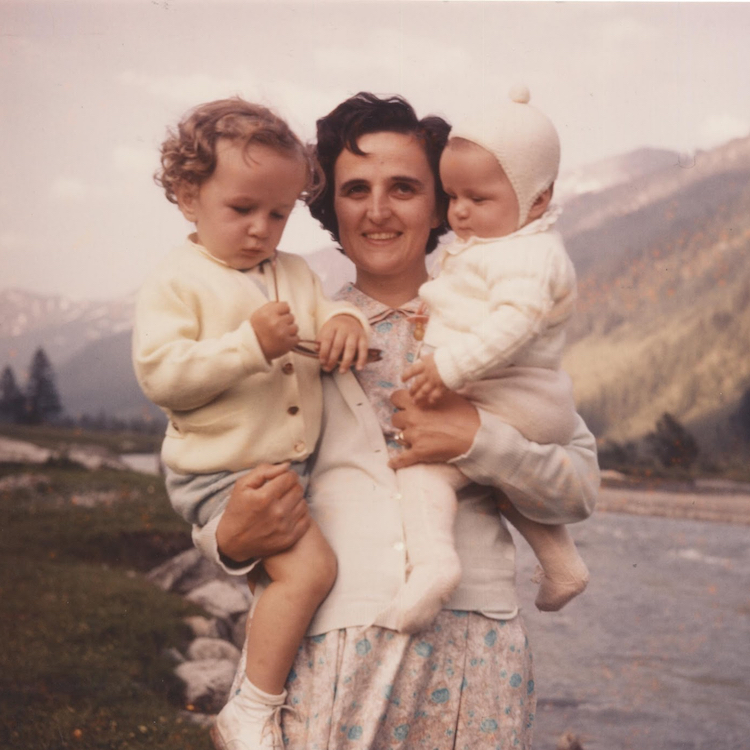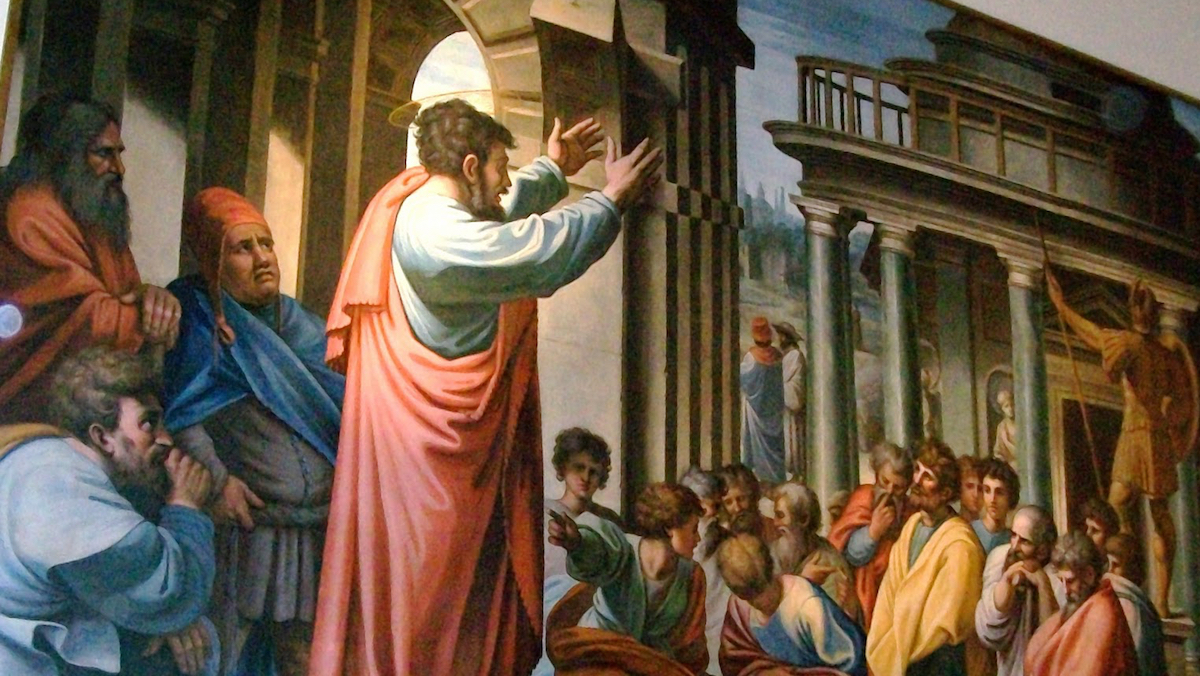Did you know that more songs have been written about love than about any other topic? But it is equally true that long before Thomas Alva Edison’s invention of the phonograph allowed us to record songs of love, love has been on our minds. And not just on our minds. It is seemingly built into our DNA. In looking around, we see the ways that love is shared between husbands and wives, families, friends, and across our parish communities.
As a son, husband, father, and deacon who presides at numerous baptisms, I have often marveled at the life-giving love that mothers provide. After their initial cooperation with God in bringing new saints into existence, they then settle into a lifelong journey of caring for them. To paraphrase the thirty-first chapter of Proverbs (31), “a woman’s work is never done.” Forever giving, a mother’s love is an eternal gift of love that never ends.
On May 16, 2004, Saint John Paul II canonized such a mother. For those of you who are unfamiliar with St. Gianna Beretta Molla, she was an Italian pediatrician and mother, who during the second month of her pregnancy, developed a fibroma on her uterus. After examination, the doctors gave her three choices: an abortion, a complete hysterectomy, or removal of only the fibroma. Gianna opted for the removal of the fibroma, wanting to preserve her child’s life.
After the operation, complications continued throughout her pregnancy. Gianna was quite clear about her wishes, expressing to her family, “This time it will be a difficult delivery, and they may have to save one or the other — I want them to save my baby.”
On April 21, 1962, Good Friday of that year, Gianna went to the hospital, where her fourth child, Gianna Emanuela, was successfully delivered via Caesarean section. However, Gianna continued to have severe pain, and died of septic peritonitis 7 days after the birth.
At her Mass of Canonization, the pope read a letter that St. Gianna Beretta Molla had written to her husband just days before their marriage:
Love is the most beautiful sentiment the Lord has put into the soul of men and women.
A great saint and Father of the Church, St. Augustine, once said:
To fall in love with God is the greatest of all romances; To seek Him, the greatest adventure; To find Him, the greatest human achievement.
In clarifying how God loves us, the Prophet Jeremiah (Jer 1:4-5; 17-19) also declared that He has given us a mission:
Before I formed you in the womb, I knew you; before you were born, I dedicated you; a prophet to the nations I appointed you.
These words are a signal that divine events are unfolding and that like Jeremiah, Jesus was consecrated in the womb and sent as a prophet to the nations. But there is more here than a mere signal; there is a statement from God himself that is directed to you and me. He knew us before we were born. We have been part of the Divine plan before time began. God loves us! And it only because He loved us first that we are able to love. (1 Jn 4:19)
In light of this, may we also recognize that love is both a noun and verb; that God is love and God loves us. In the New Testament, St. Paul stands out as one who encountered love in a profound way on the road to Damascus. Having heard the voice of Jesus, he was utterly transformed and never again the same. A prophet to the Gentiles, Paul was seized by love and preached and wrote about love until his dying day. In his Letter to the Corinthians (12:31-13:13), St. Paul reminds us that:
Love is patient, love is kind. It is not jealous, it is not pompous, it is not inflated, it is not rude, it does not seek its own interests, it is not quick-tempered, it does not brood over injury, it does not rejoice over wrong-doing, but rejoices with the truth. It bears all things, believes all things, hopes all things, endures all things…Love never fails.
In the Gospel of Luke (4:21-30), Love showed up in His own hometown and the crowds were initially “amazed at the gracious words that came from his mouth.” But they also asked: “Isn’t this the son of Joseph?” To which Jesus responded: “Amen, I say to you, no prophet is accepted is his own native place.” Now infuriated and unable to accept that Love was standing before them, they rejected Him and attempted to throw Jesus off of a hill.
Today, that event continues to lead us to the “really-big” questions. Do we truly believe that God loved us into existence and sent His only Son, our Lord Jesus Christ, to die for us? Do we truly believe that He continues to give Himself to us in the Eucharist and sacraments in order to nourish us, heal us, and build us up? Do we truly believe that we are sent to be prophets—not to the nations—but to those within our own circle of living?
If so, may we begin this day.








